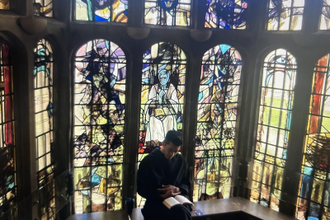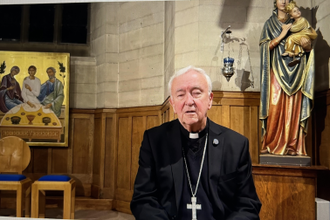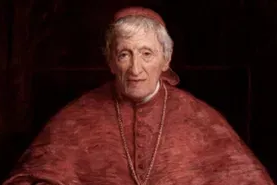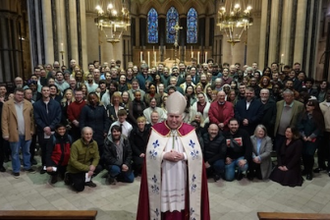St John Henry Newman to become Doctor of the Church
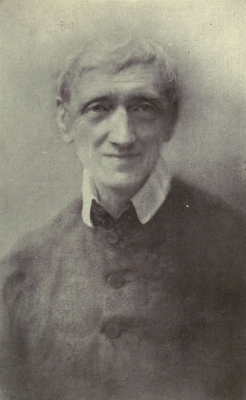
Painting of Cardinal Newman, by Jane Fortescue Seymour, c. 1876. Image public domain
Source: Vatican Media/ICN
The Vatican announced today that St John Henry Newman is to be being proclaimed a Doctor of the Church.
During an audience granted to Cardinal Marcello Semeraro, Prefect of the Dicastery for the Causes of Saints, Pope Leo XIV has "confirmed the affirmative opinion of the Plenary Session of Cardinals and Bishops, Members of the Dicastery for the Causes of Saints, regarding the title of Doctor of the Universal Church, which will soon be conferred on Saint John Henry Newman."
Saint John Henry Newman was a priest, theologian, writer and preacher. His life spanned most of the 19th century. He was an Anglican for the first half of his life and became a Catholic in the second half.
Born in London in 1801, Newman studied at Trinity College, Oxford, was a tutor at Oriel College and for 17 years vicar of the university church, St Mary the Virgin where he was was widely recognized as one of the most brilliant minds in his church-a man who captivated with both spoken and written word.
A prominent member of the Oxford Movement, which emphasized the Church's debt to the Church Fathers and challenged any tendency to consider truth as completely subjective, in 1832 he made a long visit to Italy during which time his convictions gradually shifted toward Catholicism. In 1845, he distilled his spiritual journey into the Essay on the Development of Christian Doctrine, the fruit of a long pursuit of that Light, which he came to recognize in the Catholic Church - a Church he saw as the very one born from the heart of Christ, the Church of the martyrs and the ancient Fathers, which, like a tree, had grown and developed through history.
Soon after, he asked to be received into the Catholic Church, which took place on October 8, 1845. He later wrote of that moment: "It was like coming into port after a rough sea; and my happiness on that score remains to this day without interruption."
In 1846, he returned to Italy to enter, as a humble seminarian - despite being a theologian and thinker of international renown - the Collegio di Propaganda Fide. "It is so wonderful to be here," he wrote. "It is like a dream, and yet so calm, so secure, so happy, as if it were the fulfilment of a long hope, and the beginning of a new life." On May 30, 1847, the circle of his vocation was completed with his ordination to the priesthood.
Newman was deeply drawn to the figure of St Philip Neri, founder of the Congregation of the Oratory. When Blessed Pope Pius IX encouraged him to return to England, Newman went on to found an Oratory there, dedicated to the saint with whom he shared a joyful disposition. That good humour remained intact even through the many challenges he faced in establishing Catholic institutions in his homeland, many of which seemed at first to falter. Still, his mind continued to produce brilliant writings in defence and support of Catholicism-even under fierce attack.
He published eight volumes of Parochial and Plain Sermons as well as two novels. His poem, the Dream of Gerontius, was set to music by Sir Edward Elgar.
Before Newman, Catholic theology tended to ignore history, preferring instead to draw deductions from first principles. After Newman, the lived experience of believers was recognized as a key part of theological reflection.
Newman eventually wrote 40 books and 21,000 letters that survive. Most famous are his book-length Essay on the Development of Christian Doctrine, On Consulting the Faithful in Matters of Doctrine, Apologia Pro Vita Sua (his spiritual autobiography up to 1864) and Essay on the Grammar of Assent. He accepted Vatican I's teaching on papal infallibility while noting its limits, which many people who favoured that definition were reluctant to do.
In 1879, Pope Leo XIII made him a cardinal. Upon hearing the news, Newman wept with joy: "The cloud is lifted forever." He continued his apostolic work with undiminished intensity until his death on August 11, 1890. On his tomb, he asked that only his name and a brief phrase be inscribed, one that encapsulates the extraordinary arc of his 89 years of life: Ex umbris et imaginibus in Veritatem, "From shadows and images into the Truth."
Newman died in 1890. He was buried in Rednal (near Birmingham) 11 years later. After his grave was exhumed in 2008, a new tomb was prepared at the Oratory church in Birmingham.
Pope Benedict XVI beatified John Henry Newman on 19 September 2010, at Crofton Park, near Birmingham. The Pope noted Newman's emphasis on the vital place of revealed religion in civilised society but also praised his pastoral zeal for the sick, the poor, the bereaved and those in prison.
Blessed John Henry Newman was canonized by Pope Francis in Rome, on Sunday, 13 October 2019. In his encyclical Dilexit nos, Pope Francis explained why the English cardinal had chosen as his motto the phrase Cor ad cor loquitur-"Heart speaks to heart." Because, the Pope noted, beyond any dialectical argument, the Lord saves us by speaking from His heart to ours: "This realization led him, the distinguished intellectual, to recognize that his deepest encounter with himself and with the Lord came not from his reading or reflection, but from his prayerful dialogue, heart to heart, with Christ, alive and present. It was in the Eucharist that Newman encountered the living heart of Jesus, capable of setting us free, giving meaning to each moment of our lives, and bestowing true peace."
Cardinal Vincent Nichols, President of the Bishops' Conference, said: "I am delighted and thrilled that Pope Leo has today announced that he will declare St John Henry Newman to be a 'Doctor of the Church'.
"This request has been before the Holy See for some time, having received declarations of support from many different parts of the world and, of particular importance, from the Bishops of the Church of England.
"This recognition that the writings of St John Henry Newman are a true expression of the faith of the Church is of huge encouragement to all who appreciate not only his great learning but also his heroic sanctity in following the call of God in his journey of faith, which he described as 'heart speaking unto heart'.
"This moment brings back vivid memories of the Papal Visit in 2010 of Pope Benedict XVI to these countries when he declared the beatification of John Henry Newman. That moment now reaches its fulfilment and gives great joy to all who strive to follow Christ today."



